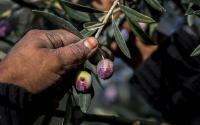13 November 2007Yahoo! News
Veterinary authorities confirmed an outbreak of the potentially lethal Asian strain of bird flu in eastern England on Tuesday, in a new blow to the British farming industry.
More than 6,000 poultry were ordered to be slaughtered at the site in Suffolk, where an exclusion zone was imposed on Monday after a suspected outbreak was found.
"I can now confirm that the strain of avian influenza found in the infected premises is the highly pathogenic avian influenza H5N1 strain," said deputy chief veterinary officer Fred Landeg.
"It is of the Asian lineage. It is closely related to strains of the highly pathogenic avian influenza found this summer in the Czech Republic and in Germany," he added.
On Monday, officials ordered the slaughter of poultry at the farm, which houses free-range turkeys, ducks and geese, while the Food Standards Agency reassured consumers that poultry meat and eggs were still safe to eat, so long as they were cooked properly.
The cull involves some 5,000 turkeys, more than 1,000 ducks and 500 geese. About 100 turkeys were found dead on Sunday, and overnight between Sunday and Monday a further 80 birds died.
Ducks and geese were not displaying symptoms, Landeg added.
Hilary Benn, the environment secretary, told parliament Tuesday that officials were doing their "darnedest" to ensure the disease did not spread, and said the anti-viral drug Tamiflu had been given to all those who were involved in the poultry cull.
A three-kilometre (1.8-mile) radius protection zone and a 10-kilometre surveillance zone has been imposed around the farm in the county of Suffolk, where there was an outbreak of H5N1 in February.
Further restrictions are in place in a wider area as a "precautionary measure" as well as a ban on poultry movements, bird fairs and pigeon racing.
Landeg said the operation to contain the latest outbreak would be tough. The similarities between the British and European strains suggested the turkeys could have caught the virus from a wild bird through contact on a farm lake.
But he said all potential sources of the virus would be investigated.
The new bird flu cases are the latest blow to hit the British farming industry, after the first foot-and-mouth disease cases in six years were found in August and the country's first ever cases of bluetongue disease in cattle.
Ireland immediately imposed a ban on the import of British birds for gatherings and shows.
Irish Agriculture Minister Mary Coughlan said a simultaneous ban was being introduced in British-ruled Northern Ireland as a precautionary all-island approach to the threat of the introduction of bird flu.
In the February bird flu outbreak some 159,000 turkeys were killed as a precaution at a plant near Holton in Suffolk, prompting some countries to impose import bans on British poultry.
An official report said it was most likely the virus reached the flock via imported turkey meat from Hungary.
Britain's first case of H5N1 was detected in a dead swan in eastern Scotland in April 2006.
The H5N1 strain first emerged in Asia in 2003, and has caused some 205 deaths in humans, with Indonesia and Vietnam among the worst hit countries, according to World Health Organisation figures.
Scientists fear that H5N1 will eventually mutate into a form that is much more easily transmissible between humans, triggering a global pandemic.
The original source is thought to have been wild migratory birds.
H5N1 has mainly affected Asia and some parts of Africa, but the Food and Agricultural Organisation warned last month that the virus could be transmitted to poultry in Europe by ducks and domestic geese seemingly in good health.
Besides Indonesia and Vietnam, deaths have been recorded in Azerbaijan, Cambodia, China, Egypt, Iraq, Laos, Nigeria, Thailand and Turkey.






